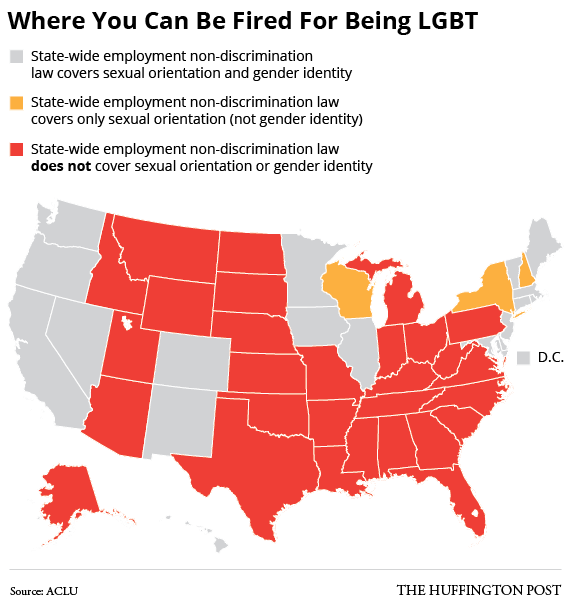Why Supporters of Trans Rights Should Be Concerned
By:
President Obama may have made history by mentioning transgender Americans in his recent State of the Union -- it was the first time that the transgender community has made the speech -- but now that the applause is over, we still have a long way to go.
Under the Obama administration, there have certainly been many victories. As the President himself acknowledged at a White House LGBT Pride Month celebration in June 2014, “[W]e’ve gone further in protecting the rights of lesbian and gay and bisexual and transgender Americans than any administration in history.”
It’s true. Obama’s embrace of the trans community has been significant when compared to the silence of previous administrations. He is the first President to:
- Say “transgender” in a speech
- Designate a transgender person as a presidential appointee
- Invite trans children to participate in the annual White House Easter egg roll event
Being invited to an Easter party by the President may seem minimal, but for a community in which more than 40 percent of its members are reported to have attempted suicide at some point (compared with less than 2 percent of the general population) and in which many Americans still don't believe exists (just ask the Southern Baptist Convention about the reality of trans lives), these acts of inclusion are noteworthy.
The Obama administration has also made it easier for transgender people to obtain passports and immigration documents that respect our gender identity -- as well as to address the difficulties many trans individuals face in finding safe homes by prohibiting discrimination based on gender identity in federally funded housing.
Unfortunately, even in areas of progress there are standout inequalities which, to borrow Obama’s own words, absolutely don’t “respect human dignity” and definitely aren’t “the right thing to do.”
Healthcare
Increased access to healthcare for trans people through the Affordable Care Act has been lauded throughout the 2013-2014 rollout, barring discrimination by health insurers against transgender Americans for the first time. (Prior to this, healthcare companies could deny insurance altogether for the simple pre-existing condition of ‘being transgender.’)
Key limitations still exist, though, like the Dept. of Health & Human Services contradictory Section 1557 clarification. Illogically, the ACA “prohibit[s] discrimination on the basis of gender identity” but still allows healthcare companies to deny medically-necessary gender transition surgeries and other care. In fact, only 9 states and the District of Columbia protect the transgender community from such unequal treatment, leaving trans people in 80 percent of the nation to fend for themselves when it comes to vital gender-affirming health services. (Could you afford a $6,000 to $14,000 surgery out-of-pocket on your salary? Plus recovery time from a job that may or may not be supportive in a state that may or may not allow you to receive medical leave benefits? Unsurprisingly, most transgender people can’t either.)
Employment Discrimination
The Oval Office also issued a historic non-discrimination order in July 2014, banning LGBT employment discrimination among federal contractors. The executive order also notably extended protection to all federal employees based on gender identity, jointly protecting an estimated 20 percent of the American workforce from being fired for reasons that have nothing to do with job performance.
What’s the problem here? 80 percent of the workforce -- and all trans people that are not employed by the federal government, a federal contractor, or in one of 18 states that protect the trans community from unequal treatment on the job -- are still left out in the cold. Why? Because Congress has been unable to pass an inclusive version of the Employment Non-Discrimination Act, which would end such discriminatory practices nationally.
Perhaps that’s one of the reasons why transgender individuals are four times more likely to live in extreme poverty than their cisgender counterparts.

The progress is not necessarily permanent.
Add to this the impermanence of many of the positive changes that have happened under Obama -- a great number have come via executive order, which may be overturned by Congress, the Supreme Court, or any future President -- and there is significant cause for concern as Obama’s presidency comes to a close. I’m happy that Obama acknowledged my existence in front of the nation, providing my community with “legitimacy” as Time Magazine noted.
But I think it’s time for more than legitimacy, don’t you?
